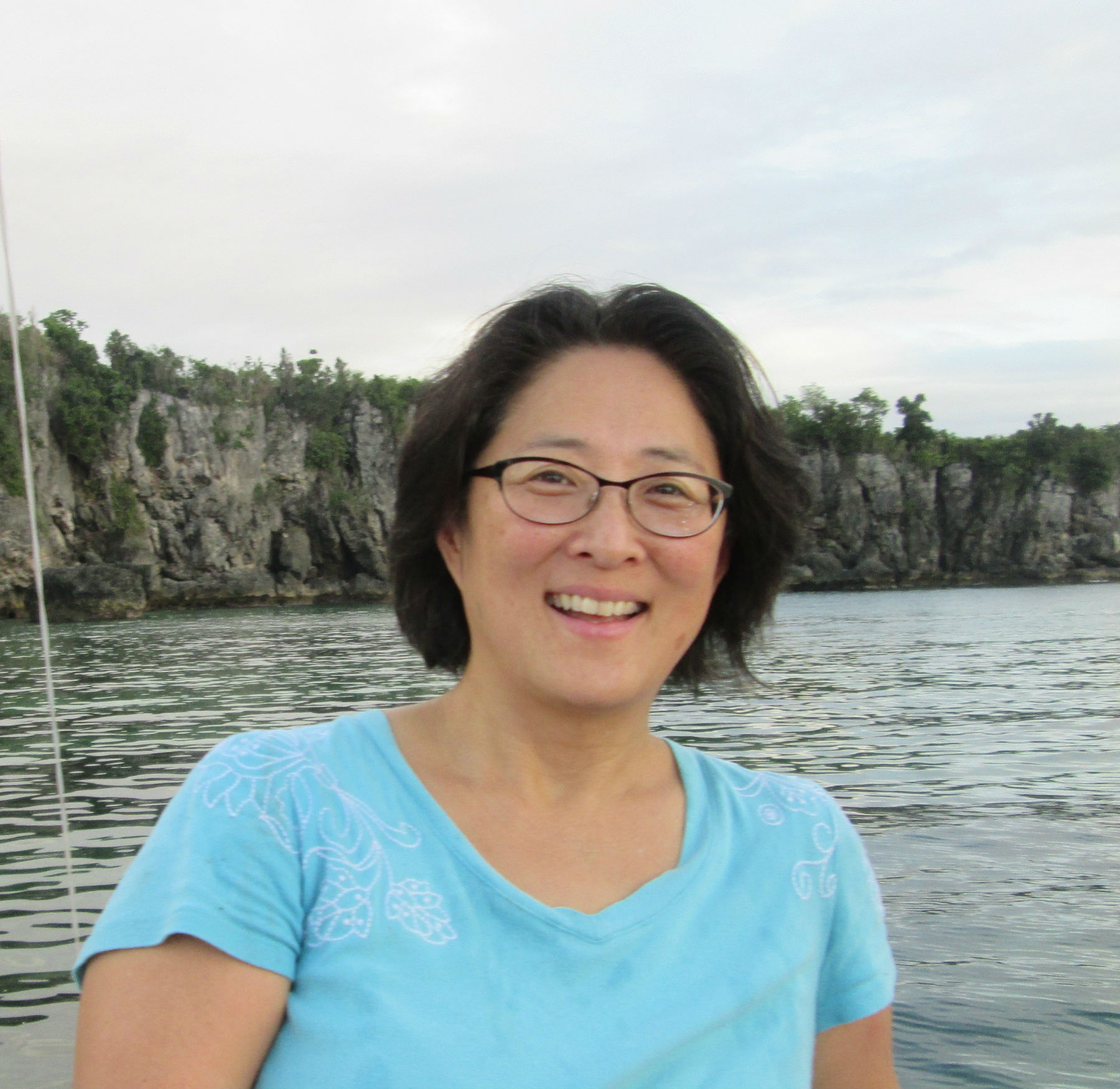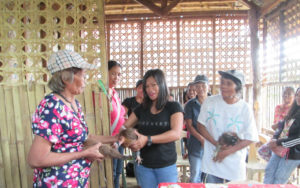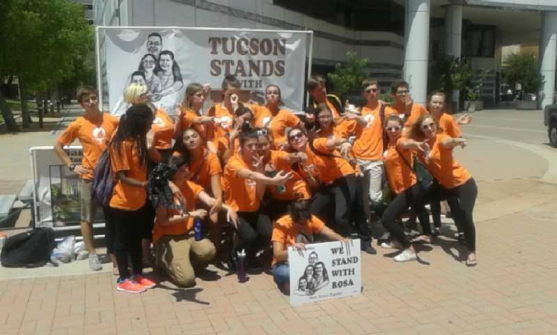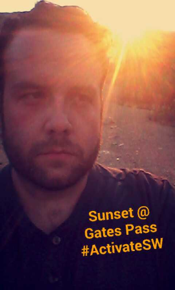
by Heather Vickery | Apr 15, 2016 | Religious Professionals
Jennifer Ryu is a recipient of UUCSJ’s Ministerial Sabbatical grant which offer rich encounters with historic and emerging expressions of our Unitarian faith in a different cultural context.
Today I’m packing up to leave Cebu City which has served as home base for “part one” of my sabbatical journey to the Philippines. During these first two weeks, I travelled with Rainer Lucero, UUSC coordinator for local projects. We visited over eleven communities affected by typhoon Yolanda in November 2013, traveling by planes, boats, vans, trucks, and by foot to reach these remote areas. Everywhere we went, I witnessed the resurrective power of community. This was the kind of people power that I had hoped to foster in the congregation I just left.
In June, 2015, I said goodbye to a church that I had served for nearly a decade. Although the ministry was going well, and I could have easily stayed many more years, my soul was urging me to move on. Since I had no idea where I was supposed to go, I decided to spend this year remembering what called me to ministry in the first place.
After so many years living in the bubble of suburban America and the bubble of American Unitarian Unitarianism, I needed a big change in perspective. Thanks to the UU College of Social Justice Program Grant For Ministerial Sabbatical Program, I was able to design a trip that exposed me to both the UUSC typhoon relief work and the UU Church of the Philippines–two different expressions of Unitarian Universalism in the world.
The rural communities we visited are not unlike churches. Members of these voluntary associations often came together as households, so they are naturally multigenerational. They join their financial resources for the good of the community and support one another in times of need. Not only do they build economic power through their organization, but also political power. Some are organized by livelihood (farmers and fisherfolk) or identity (LGBT and indigenous peoples and women); others are based on village geography.

Ceremony for distributing livestock. The first beneficiaries will raise chickens and goats, then give the animals’ offspring to the second round of beneficiaries.
The work that the UUSC has been doing in the Philippines goes way beyond relief work. They are using their networks and expertise to build up institutions–those local, grassroots groups of people who are too often ignored by their own governments and larger NGOs. When individual women organize, educate themselves, and seek official recognition from the government, they can then exercise their power to shape municipal budgets, policies and laws.
As I look forward to coming home in a few more weeks, I am thinking about the marginalized people in my own neighborhood…where is their local power? How are they organizing themselves into voluntary associations that convey benefits and also require high engagement and participation?
I carry these questions with me as I board the bus to Dumaguete, headquarters for the UU Church of the Philippines, where I will meet with college students and make a presentation to the annual UU Women’s Conference.

by Heather Vickery | Apr 8, 2016 | Program Leader, Youth
Read Part 1 of Sam’s Blog, “Why I Love My Work”
What exactly is so special about Activate Youth Justice Trainings that so many of its alums claim to have gone through such an intense and life-changing experience? The simplest explanation for what happens during Activate! is to break it down to these 5 main concepts: Education, Engagement, Growth, Community & Transformation.
Education and Engagement: We use interactive, participatory and fun activities to start learning more about the issues as a group. Meanwhile, we engage groups in activism and hands-on justice work that is happening in the area while we are there. As such, programming evolves and shifts with each passing year as different justice issues emerge and grow. Our programs maintain a certain level of flexibility so that we can respond immediately to current events, and each program is uniquely tailored to focus on an issue that is especially relevant in that region of the country. In 2013, for example, our group immediately switched up our schedule and took to the streets to join other Boston activists in protest when George Zimmerman was found not guilty for killing Trayvon Martin. Last summer, in Tucson, our youth joined a movement for immigration justice to #StandWithRosa as she found Sanctuary from deportation in a local church (pictured below, at an event in support of Rosa’s right to remain in the United States).

Activate Tucson youth assisting at a big public event to raise awareness about the #StandwithRosa campaign in Tucson. They also helped distribute over 100 lawn signs in the community as part of their work.
Growth: Youth are encouraged to come to terms directly with the identities that they hold and what this means in terms of their privilege and power within different systems. As Jenna Peeples, Activate Tucson ’13 alum, explains: “Even if only for a moment, we are ejected from our concentrated high school lives and put somewhere outside of our comfort zone; this allows us to open our eyes. We catch sight of not only our privilege, but the urgency that is associated with various issues going on around us.” Although participants do not need to be Unitarian Universalist to attend these trainings (and certainly some of our most enthusiastic participants were members of different faiths!) we do incorporate various UU elements and there is an emphasis on spiritual growth. Teens will have time to learn and try out a variety of spiritual practices, as well as plan and run their own youth worship in small groups. This in turn supports the difficult identity and justice-related work. Julia explains: “The UU component made it a place where I felt safe, even when faced with uncomfortable ideas.”
Community: Throughout the week, we do all kinds of fun things to build a tight-knit community amongst ourselves, and then extend that community to build relationships with the local justice-related organizations we’re in partnership with. In some programs teens will cook together, in others they form family groups that spend time reflecting and supporting each other’s processing etc., and we also engage the larger group in a variety of fun community-building and empowering activities. Each cohort has its own Facebook page, and teens often continue posting things many years after the trainings. I cannot even begin to explain how exciting it is in the weeks following these trainings to see the flurry of posts on the group pages about what cool justice thing each is now doing, what exciting protest they are going to that weekend, what thing happened that suddenly reminded them of this or that (and now they have “all the feels”). They form these really special friendships quickly over their shared values and immediate submersion in such difficult, meaningful work together.
Transformation: All of the above ultimately leads to these incredibly exciting transformations for the participants, who soon find themselves overwhelmingly inspired by what they have learned, seen and done. They feel empowered by the experiences and the tools they have picked up along the way; their engagement in social justice work has been *activated* and they go back to their congregations and communities with this freshly-revitalized sense of purpose.
FOR MORE INFO. AND TO APPLY TO CSJ’S SUMMER YOUTH ACTIVATE PROGRAMS, PLEASE CLICK HERE!
 Sam was consistently struck by the juxtaposition of such hideous, dehumanizing and tragic acts of hatred toward people crossing the border; set against the natural beauty and allure of the sunsets in Tucson.
Sam was consistently struck by the juxtaposition of such hideous, dehumanizing and tragic acts of hatred toward people crossing the border; set against the natural beauty and allure of the sunsets in Tucson.
Questions about Activate! and how to support your youth in attending an upcoming Justice Training? Email Sam at swilson@uucsj.org





